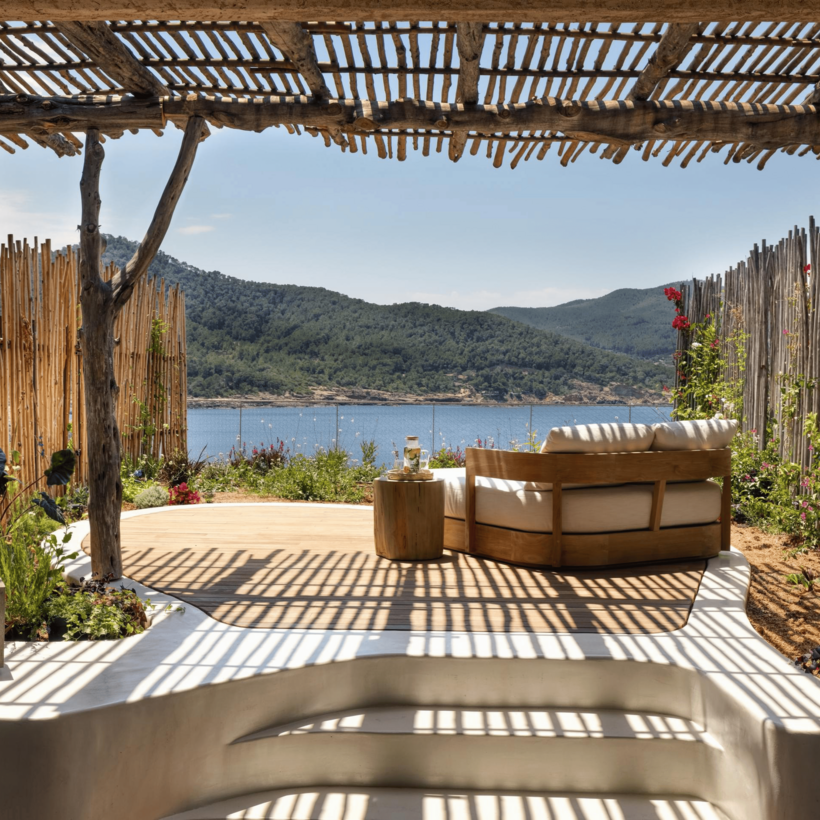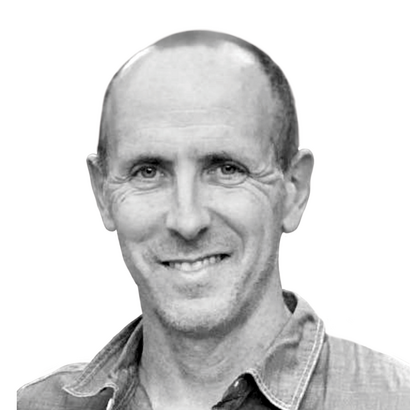The breakfast buffet at the Six Senses, Ibiza is served in their showstopping main building. A three-story room that opens fully on one side to the sea, like an airplane hangar built by a sun cult in a stylish horror film in which we will all be required to line up and throw ourselves to our deaths at the end of an ecstatic ceremony scored by Boygenius.
It’s in this hangar, as the sun rises over the Mediterranean warming its death rays, that all the demographic cohorts gather each morning.




